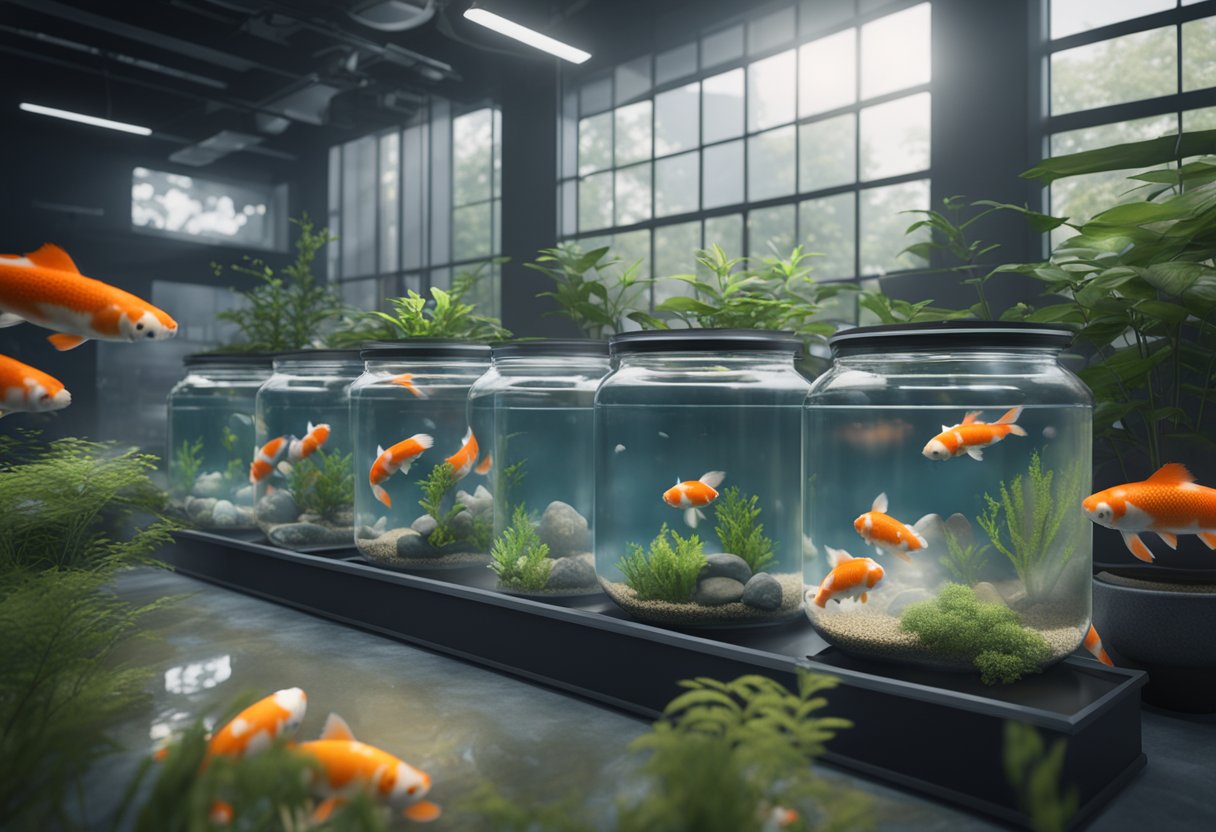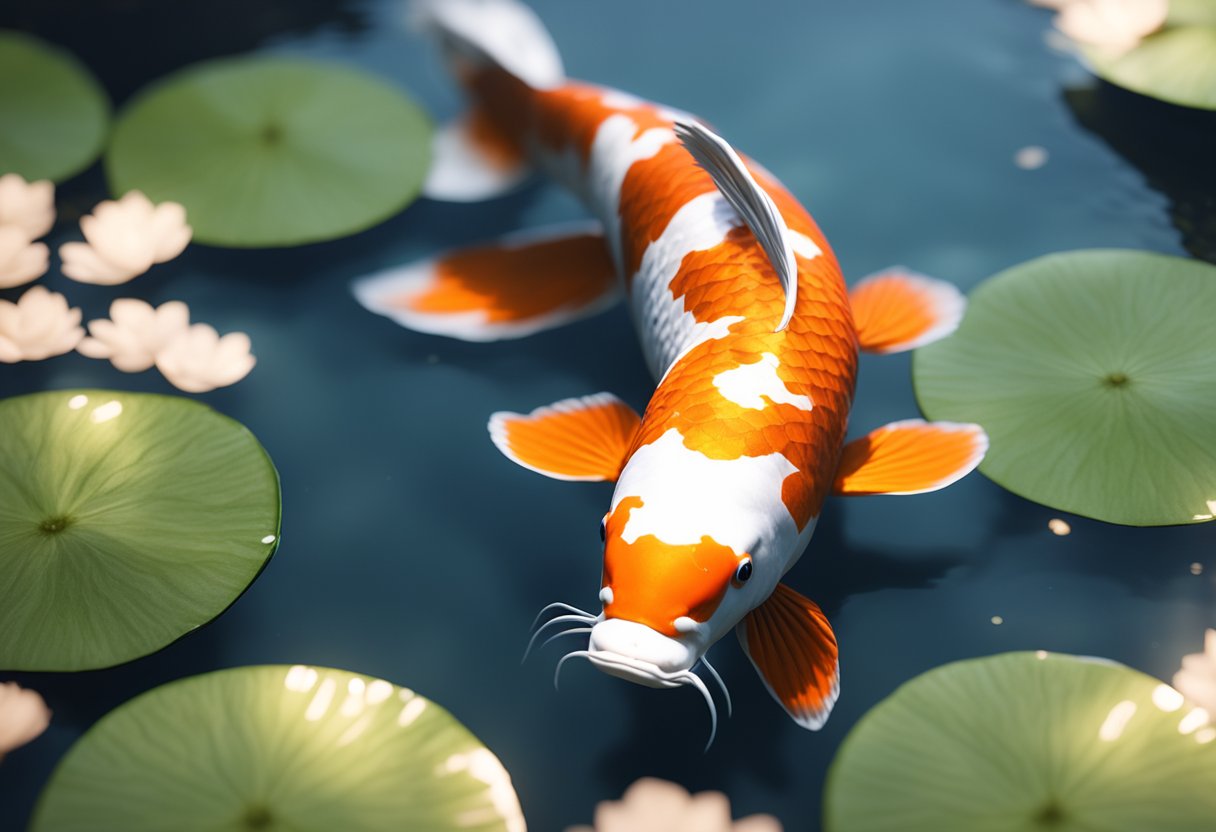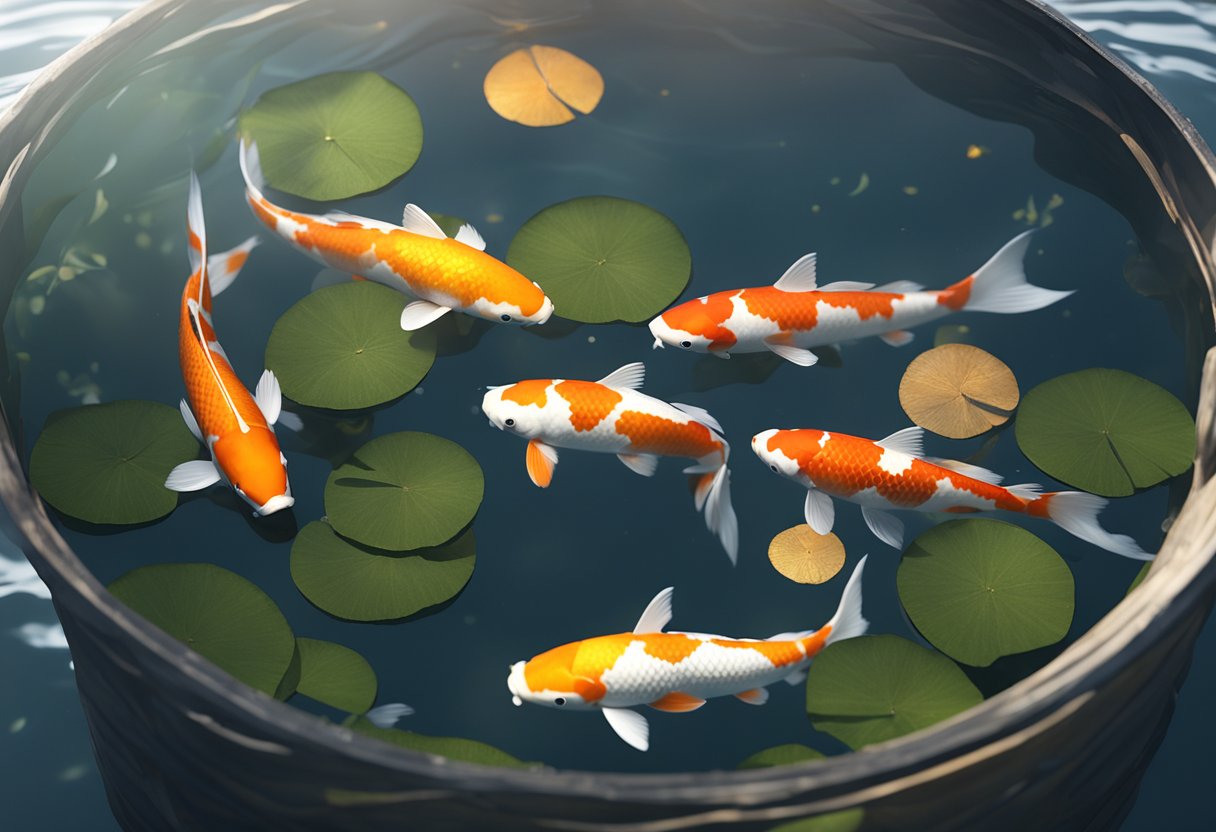Essential Tips for Koi Disease Prevention

Minimizing Stress Factors
Minimizing stress factors is crucial for the overall health and well-being of koi fish. By reducing stress, pond owners can greatly improve their chances of preventing common koi diseases and promoting optimal koi disease prevention.
Strategies to Reduce Stress
There are several strategies that can help minimize stress factors in koi fish:
- Avoid Overcrowding: Providing enough space for each koi fish is essential to prevent stress. Overcrowding can lead to aggression, competition for resources, and compromised water quality, making koi more susceptible to diseases. It is recommended to follow the recommended stocking density guidelines based on the size and filtration capacity of the pond.
- Maintain Stable Water Parameters: Sudden fluctuations in water temperature, pH levels, and dissolved oxygen levels can stress koi fish. Regularly monitoring and maintaining stable water parameters within the optimal range can help prevent stress-related health issues in koi.
- Ensure Good Water Quality: Poor water quality can significantly impact the health of koi fish and increase their vulnerability to diseases. Regular water testing, effective filtration systems, and proper pond maintenance are essential for maintaining clean and healthy water conditions.
- Minimize Noise and Disturbances: Loud noises, vibrations, and sudden movements can startle and stress koi fish. It is important to minimize noise levels in the vicinity of the pond and avoid sudden disturbances to create a calm and peaceful environment for the fish.
- Protect from Predators: Natural predators can cause immense stress to koi fish. Installing adequate predator deterrents such as netting, decoys, or motion-activated scare devices can help reduce the risk of predator attacks and minimize stress.
By implementing these strategies, pond owners can create a low-stress environment that promotes the well-being and disease prevention of their koi fish.
| Stress Factors | Prevention Strategies |
|---|---|
| Overcrowding | Follow recommended stocking density guidelines |
| Fluctuating water parameters | Monitor and maintain stable water conditions |
| Poor water quality | Regular water testing and effective filtration |
| Noise and disturbances | Minimize noise levels and sudden disturbances |
| Predator attacks | Install predator deterrents |
Treating and Preventing Parasitic Infections
Parasitic infections are a common concern for koi fish enthusiasts. These tiny invaders can cause a range of problems, from skin irritations to more serious health issues. To ensure the well-being of your prized koi, it is crucial to be proactive in preventing and treating parasitic infections. By implementing effective measures, you can safeguard your koi pond and promote a healthy environment for your fish.
Koi Disease Prevention:
One of the key steps in preventing common koi diseases is to maintain clean and well-balanced water conditions. This helps to minimize stress on the fish and strengthens their immune system, making them less susceptible to parasitic infections. Regular monitoring of water quality parameters such as pH, ammonia levels, and temperature is essential to detect any deviations that may indicate parasite presence.
“Regular monitoring of water quality parameters is essential to detect any deviations that may indicate parasite presence.”
Quarantine Procedures:
When introducing new koi fish to your pond, it is imperative to quarantine them first. This isolation period allows you to closely monitor the newcomers for any signs of parasites or infections. A separate quarantine tank should be set up with proper filtration and water quality control measures to ensure the health of the new arrivals.
“Quarantining new koi fish helps prevent the introduction of parasites to the main pond, protecting the existing koi population from potential infections.”
Medicated Treatments:
If parasitic infections are detected in your koi pond, prompt treatment is essential to prevent their spread and minimize the impact on fish health. There are several effective medicated treatments available, such as bath treatments and topical ointments, that can target specific parasites. It is important to follow the instructions provided by the manufacturer and consult a koi health expert if needed.
Proactive Parasite Prevention:
Prevention is always better than cure when it comes to parasitic infections in koi fish. Implementing proactive measures can significantly reduce the risk of infestation. Regularly cleaning and maintaining pond filters, removing debris, and ensuring good water circulation can help create an environment that is less favorable for parasites to thrive.
| Preventive Measures | Description |
|---|---|
| Quarantine New Fish | Isolate and monitor new additions to the pond to prevent the introduction of parasites to the main population. |
| Maintain Water Quality | Regularly test water parameters and perform necessary adjustments to create optimal conditions for fish health. |
| Ensure Proper Filtration | Clean and maintain pond filters to remove potential carriers of parasites and maintain good water quality. |
| Minimize Stress | Reduce stress factors such as overcrowding, sudden temperature changes, and poor water quality to boost fish immunity against parasites. |
| Monitor Fish Behavior | Observe fish closely for any signs of abnormal behavior, including scratching against surfaces or decreased appetite, which could indicate a parasitic infection. |
By following these preventive measures and promptly addressing any parasitic infections, you can help ensure the health and well-being of your koi fish. Remember, early detection and proactive prevention are key to maintaining a thriving koi pond.
Educating Yourself on Koi Diseases
Knowledge is a powerful tool when it comes to ensuring the health and well-being of your koi fish. By educating yourself on koi diseases, you can take proactive steps to prevent illnesses and provide the best possible care for your fish.
One of the best ways to stay informed is by utilizing reliable resources for koi health information. Online forums, websites, and publications dedicated to koi fish care are valuable sources of knowledge. They provide comprehensive guides, articles, and expert advice on koi disease prevention, treatment, and overall koi fish care guidelines.
“Educating yourself on koi diseases can help you identify potential health issues early on and take appropriate action. By staying informed, you can provide the best care for your koi and maintain a thriving pond environment.”
In addition to online resources, establishing a relationship with a reputable koi veterinary service is crucial. Veterinary professionals specializing in koi fish can offer expert guidance and assistance, particularly in diagnosing and treating diseases. Regular check-ups and consultations with a qualified koi veterinarian can help identify any potential health issues and prevent them from escalating.
Continuous learning is essential when it comes to koi disease prevention. As research and understanding of koi diseases evolve, it is important to stay updated on the latest advancements in koi health care. Attending seminars, workshops, and conferences conducted by experienced koi experts can provide valuable insights and expand your knowledge base.
Conclusion
In conclusion, ensuring the well-being and longevity of koi fish requires implementing proper disease prevention measures. By following essential tips such as maintaining a healthy pond environment, performing quarantine measures for new koi, providing a balanced diet, and regular monitoring and maintenance, koi enthusiasts can minimize the risk of common diseases.
Additionally, minimizing stress factors and educating oneself on koi diseases play crucial roles in promoting koi fish health. By understanding the symptoms, causes, and treatments of common koi diseases, owners can take proactive steps to prevent and address potential issues promptly.
By prioritizing koi disease prevention, enthusiasts can create an optimal environment for their koi fish, promoting their overall well-being and enhancing the enjoyment of this beautiful and captivating aquatic species.




